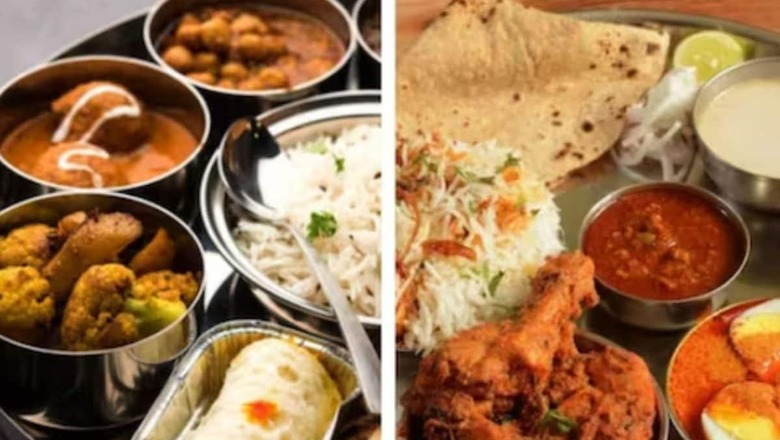
views
In the eternal food debate of vegetarian vs non-vegetarian diets, opinions often clash; sometimes even within the same family. On one side are those who advocate for vegetarianism, embracing a love for all life, on the other side are the non-vegetarians, who believe in including juicy, tender meat in their dinner. The question that lingers is, which is healthier?
For centuries, this culinary clash has unfolded, creating discussions that can turn heated as well as spicy. Non-vegetarians feast on aquatic delights like fish, crab, and shrimp, as well as land-dwelling creatures such as goats, cows, pigs, chickens and quail. The debate extends beyond personal preferences and permeates cultural and religious beliefs, where food and principles are intertwined.
One of the primary arguments in favour of a non-vegetarian diet is its protein-rich nature. Advocates claim it’s a powerhouse of essential amino acids crucial for immunity, muscle development, and overall body repair. Lean meats pack a punch with iron, zinc, vitamin B12, and omega-3 fatty acids. However, caution flags fly high for red and processed meats due to their cholesterol content, potentially harmful to the body.
The vegetarian camp argues for the benefits of a diet that includes vegetables, fruits, whole grains and legumes. Not only is it rich in fibre, but it also boasts an abundance of antioxidants, vitamins and minerals. The ease of digestion and stress-reducing qualities make vegetarian meals a preferred choice. With low cholesterol levels, these diets contribute to stable blood pressure, earning them the reputation of being heart-healthy.
Yet, challenges persist for vegetarians, particularly in acquiring nutrients like vitamin B2, iron, and omega-3 fatty acids abundant in meats. Amino acid deficiencies can also pose hurdles, making it essential for those embracing a plant-based diet to be mindful of their nutritional intake.
Ultimately, the key to a healthy lifestyle lies in balanced eating habits, irrespective of dietary preferences. Whether one opts for a vegetarian or non-vegetarian path, incorporating food variety ensures that the body receives a spectrum of nutrients essential for well-being.
In this age-old culinary clash, the decision between vegetarianism and non-vegetarianism transcends personal choice—it’s about crafting a diet that harmonises with individual health goals. So, as the debate sizzles on, let’s remember that in the grand banquet of life, diversity on our plates may well be the recipe for good health.



















Comments
0 comment